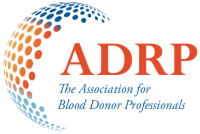Alternatives to blood donor deferral of gay, bisexual, and other men who have sex with men: Acceptability of screening the sexual risk behavior of all blood donors
Authors
William A. Fisher, Taylor Kohut, Hyunjin Woo, Jennie Haw
Abstract
Background
Blood operators screen donors to reduce the risk of transfusion-transmitted infections (TTIs). Many are evolving screening procedures from those that defer all who have had a sexual interaction with gay, bisexual, or other men who have sex with men (gbMSM) to an approach that assesses individual donors’ recent sexual risk behavior with any partner.
Study Design and Methods
A representative sample of current blood donors (N = 1194) was recruited online and randomized to complete either the existing (at the time of the study) Canadian Blood Services’ donor questionnaire (DQ) that screens out those with recent gbMSM sexual experience, a modified donor questionnaire (MDQ) that assesses individuals’ recent sexual behavior with any partner, or an MDQ that assesses individual sexual behavior with any partner and explains why these questions are asked. Respondents were asked for their perceptions concerning difficulty, comfort, and acceptability of these screening questionnaires.
Results
Across experimental conditions, current donors regarded screening questionnaire difficulty to be low; discomfort in responding was minimal; screening questionnaires were perceived to be relatively inoffensive and justified, and very few donors would cease donating if the screening questionnaire they responded to became the one in general use. Some minor sex differences were observed, and in some cases, perceptions of the MDQ with explanation were somewhat more positive than those of the DQ and MDQ without explanation.
Discussion
An individual risk behavior screening approach appears to be acceptable to current blood donors as an alternative to screening out all who have recently engaged in gbMSM sexual interactions.
December 1, 2022
Related Resources
Engaging blood donors as advocates Social media preferences and associations with marketing
Background: Various critical medical procedures would become impossible without blood donations—saving lives in emergencies, surgeries, and chronic conditions like thalassemia. Therefore, it seems crucial to enhance donor recruitment and ensure…
Rethinking the role of older donors in a sustainable blood supply
INTRODUCTION Many countries, particularly high human development index countries, are facing the challenge of an aging population.1 For Blood Collection Agencies (BCAs) in these countries, an aging population poses two…


